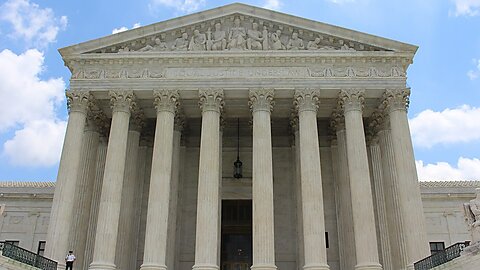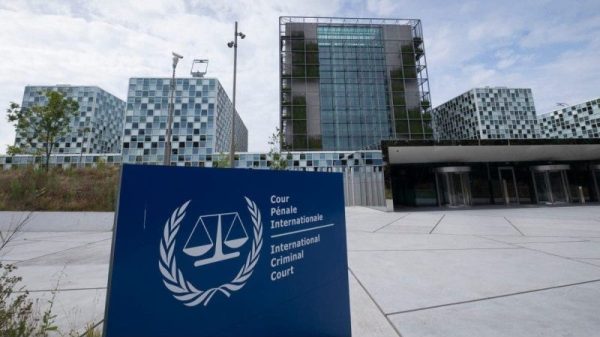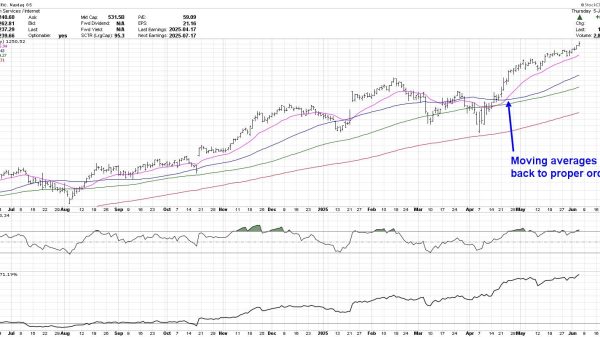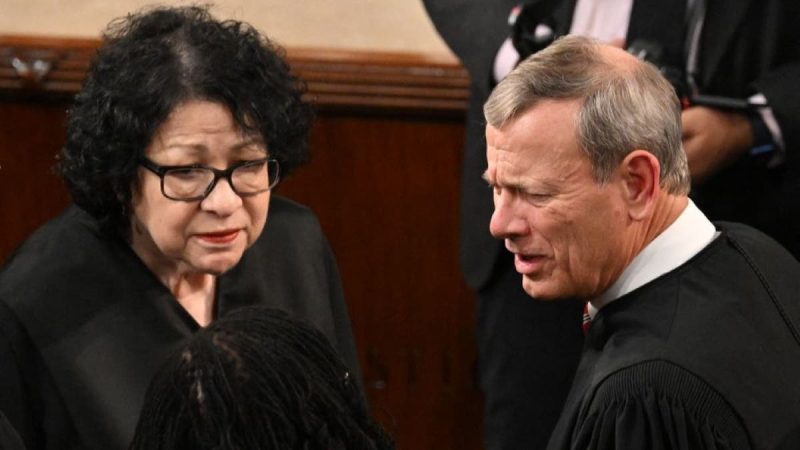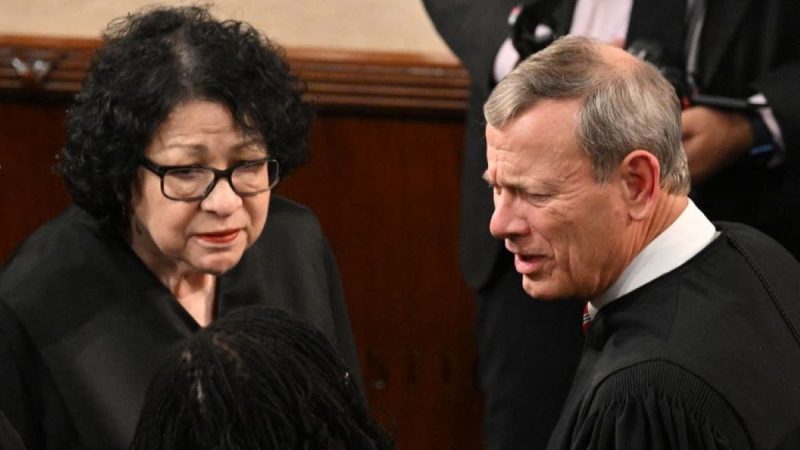
Supreme Court Chief Justice John Roberts reined in Justice Sonia Sotomayor during argument over birthright citizenship and nationwide court injunctions on Thursday.
Sotomayor dominated questioning for several minutes at the outset of Thursday’s argument after taking over from Justice Clarence Thomas. She pressed U.S. Solicitor General John Sauer for President Donald Trump’s administration on several points relating to the authority for federal courts to issue nationwide injunctions, often speaking over the lawyer and interrupting him.
Sotomayor argued that Trump’s order invalidating birthright citizenship violated four Supreme Court precedents, and that it was justified for a federal judge to grant an injunction against such a controversial order.
‘You are claiming that not just the Supreme Court, that both the Supreme Court and no lower court, can stop an executive from universally violating holdings by this court,’ Sotomayor said.
‘We are not claiming that because we’re conceding that there could be an appropriate case only in class only,’ Sauer said.
‘But I hear that–,’ Sotomayor said, beginning to interrupt Sauer.
‘Can I hear the rest of his answer?’ Roberts then interjected.
Sauer then elaborated on his statement, saying the government is arguing that federal courts can intervene on behalf of specific plaintiffs before them, but not nationwide. He said the Supreme Court has the authority to grant nationwide injunctions in certain circumstances.
Sauer used the bulk of his opening arguments Thursday to reiterate the Trump administration’s view that universal injunctions exceeded lower courts’ Article III powers under the Constitution, noting that the injunctions ‘transgress the traditional bounds of equitable authority,’ and ‘create a host of practical problems.’
Universal injunctions ‘require judges to make rushed, high-stakes, low-information decisions,’ he said. ‘They operate asymmetrically, forcing the government to win everywhere,’ and ‘invert,’ in the administration’s view, the ordinary hierarchical hierarchy of appellate review. They create the ongoing risk of conflicting judgments.’
A Supreme Court decision here could have sweeping national implications, setting a precedent that would affect the more than 310 federal lawsuits that have challenged White House actions since Trump’s second presidency began on Jan. 20, 2025, according to a Fox News data analysis.
The consolidated cases before the court are Trump v. CASA, Trump v. the State of Washington, and Trump v. New Jersey.
It’s unclear when the justices will rule, but their decision to fast-track the case means an opinion or order could come within weeks – or even days.
Fox News’ Breanne Deppisch, Shannon Bream and Bill Mears contributed to this report.

